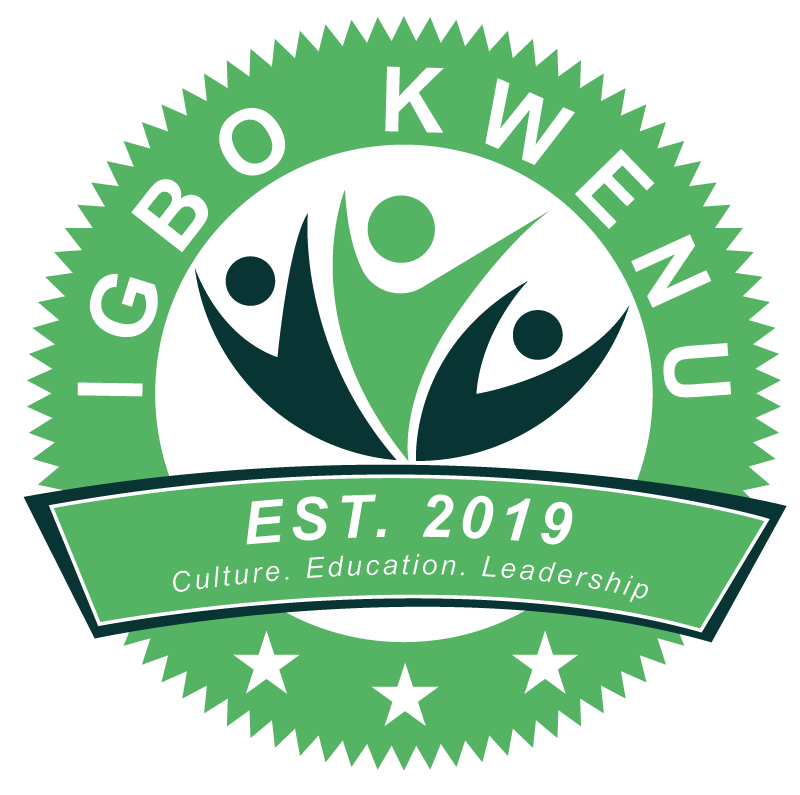Igbo Culture
Music
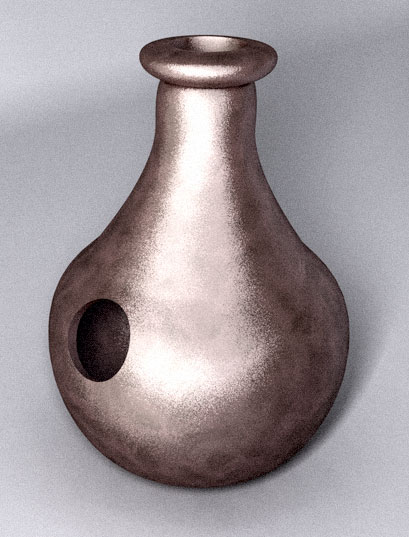
In Igbo culture music relies heavily on percussion instruments such as the drum and the gong, which provide a wide array of tempo, timbre, and pitch. Our music tends to be lively, upbeat, and spontaneous, creating a variety of sounds that can be part of almost any facet of one’s daily life. Igbo music remains quite traditional, yet has undergone some changes. A new genre was born in the 60’s and 70’s called Igbo highlife, a fusion of traditional Igbo music and West African highlife.
Masking
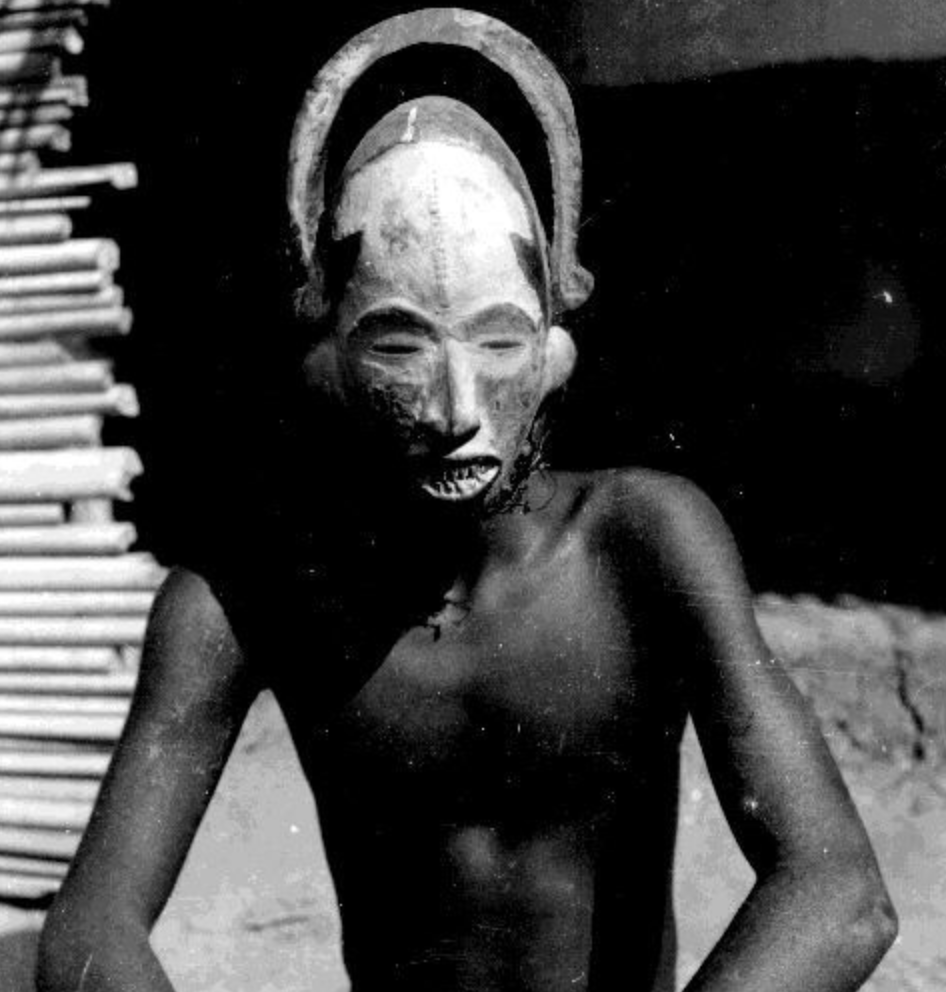
In Igboland, masquerading is a popular style of art, linked with traditional Igbo music. Masks are made of wood or fabric, along with other materials, such as iron and vegetation. Masks are used in social satires, religious rituals, secret society initiations, and public festivals, including Christmas celebrations. Masquerades often represent dead ancestors coming back to entertain us
Dance
Of the many Igbo dance styles, one of the best-known is atilogwu, a spirited youth dance that focuses on vigorous body movements and frequently includes acrobatics. The Igbo word “atilogwu” means “has magic.”
Religion
The traditional Igbo religion is Odinani, whose supreme deity is Chukwu, “great spirit,” who created the world and all things in it. Chuckwu is a combination of the Igbo words “Chi,” “spiritual being,” and “Ukwu,” “great in size.” Among Igbos today, Christianity is the most popular religion. In fact, Igbos have adopted Christianity more than any ethnic group in Africa.
Attire
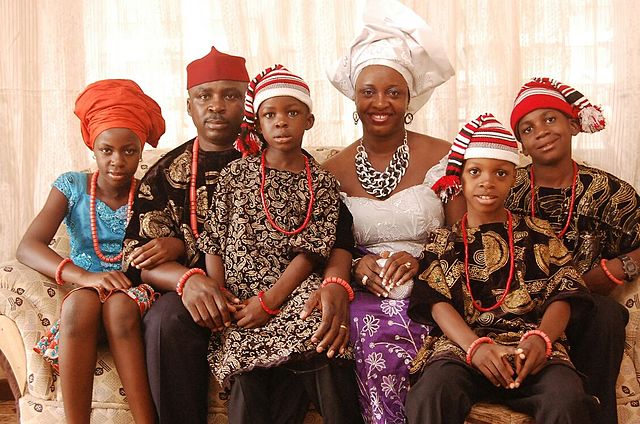
Modern traditional Igbo attire for men usually consists of the “Isiagu,” a top which resembles the Dashiki of other African ethnic groups. It is usually embroidered with lions on a plain dark background. The Isiagu is worn with trousers and either a ceremonial hat of a title holder or with the okpu agu, a conventional striped hat. Traditional women’s attire includes a puffed sleeve blouse, two wrappers, and a head tie.
Cuisine
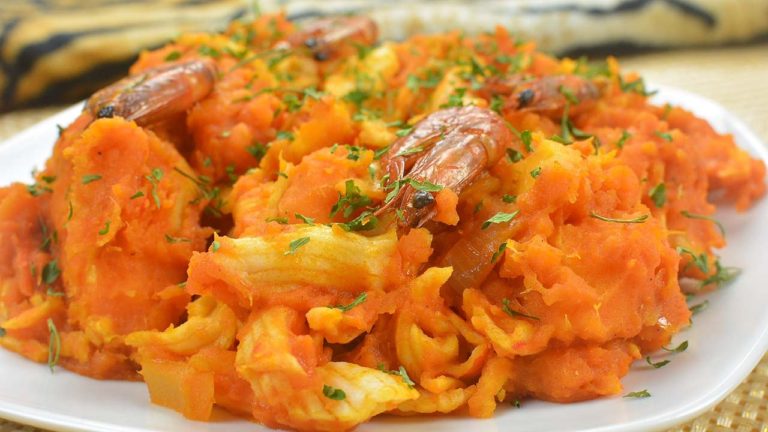
Igbo cuisine features the yam, an important staple crop. It is known for its resilience—it remains edible for six months without refrigeration—and versatility—it can be fried, roasted, boiled, or made into a porage with tomatoes and herbs. The Iri Ji Ofu New Yam Festival is held during harvest time. Other indigenous foods are cassava, garri, maize, plantains, and okra, a vegetable whose name comes from the Igbo word, “okwuru.”
Click below to see how three traditional Igbo events are celebrated in Nigeria:
Naming Ceremony
Traditional Wedding
